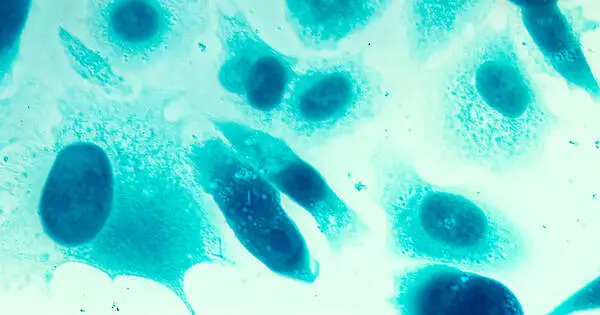Immunotherapy involves using drugs or other substances to stimulate the body’s immune system to attack cancer cells. While traditional treatments like chemotherapy and radiation can be effective against prostate cancer, they can also have significant side effects and may not be effective against all types of disease.
According to a phase 2 study led by researchers at the Johns Hopkins Kimmel Cancer Center and its BloombergKimmel Institute for Cancer Immunotherapy, enoblituzumab, a monoclonal antibody, is safe in men with aggressive prostate cancer and may induce clinical activity against cancer throughout the body. Enoblituzumab, if confirmed in additional studies, could become the first promising antibody-based immunotherapy agent against prostate cancer.
In a clinical trial, 32 men with high-risk or very high-risk prostate cancer who were scheduled for prostate cancer surgery were given six weekly infusions of enoblituzumab prior to surgery and were then followed for an average of 30 months. Twenty-one patients, or 66%, had undetectable PSA levels 12 months after surgery, indicating that there was no evidence of residual disease. Furthermore, the drug was well-tolerated overall; no patients experienced any surgical delays or medical complications during or after the procedure.
A description of the work was published in the journal Nature Medicine.
The findings are exciting but exploratory, and need to be confirmed in larger study cohorts. However, these findings in high-risk prostate cancer patients, as well as the broader need for immunotherapeutic strategies with efficacy in prostate cancers, provide justification to continue developing multipronged approaches, including targeting B7-H3 to optimize antitumor activity in prostate cancers and other solid malignancies.
Emmanuel S. Antonarakis
According to lead study author and cancer immunology researcher Eugene Shenderov, M.D., Ph.D., assistant professor of oncology at the Johns Hopkins University School of Medicine, if enoblituzumab continues to perform well in larger randomized studies, it could represent a new pathway for immunotherapy against multiple cancers, and the first one that may have a role for prostate cancer. Other antibody-based immunotherapy drugs on the market have targeted immune checkpoints, which are natural on/off switches that mediate immune responses, such as CTLA-4, PD-1, and LAG-3. Cancer cells hijack these checkpoints, preventing the immune system from responding to cancer. “Drugs that block these checkpoints have had success in other types of cancer, such as lung cancer and melanoma, but not in prostate cancer,” Shenderov explains.
Enoblituzumab works by binding to the protein B7-H3, which is overexpressed on prostate cancer cells and is thought to impair the immune system’s ability to attack cancer cells. According to Shenderov, the new therapy could deliver a one-two punch against cancer by blocking B7-H3’s inhibition of the immune system’s recognition and elimination of cancer cells while also triggering a process known as antibody-dependent cellular cytoxicity (ADCC), which leads to tumor cell destruction by activating additional immune cells such as macrophages and natural killer cells.

“Enoblituzumab appears safe and seems to activate the immune system in a way that involves both T-cells and myeloid cells,” Shenderov says. “What this means is if these results can be replicated in a larger, randomized study, it opens the possibility that combining this therapy with local, curative-intent therapies like surgical prostate removal or radiation therapy, would allow this drug to potentially kill micrometastatic disease hiding elsewhere in the body, and therefore prevent a significant number of men from experiencing recurring disease. That could be a paradigm shift in prostate cancer.”
The average age of study participants was 64 years old (age range 48-74). Approximately half (47%) had a PSA greater than 10 ng/mL at diagnosis, which is considered abnormally high, and 50% had Gleason grade group 5 disease at biopsy, indicating highly aggressive disease. Patients were enrolled between February 2017 and June 2019. According to post-surgery prostate samples, enoblituzumab was confirmed to penetrate prostate tumors and bind to B7-H3 in the vast majority of participants.
The most common side effects of enoblituzumab were fatigue, neurological symptoms such as headache or dizziness, and flu-like or cold symptoms. One patient developed heart inflammation (myocarditis), which resolved completely with steroid treatment and is a known side effect of other immune checkpoint drugs.
Researchers looked for changes in the tumor microenvironment before and after enoblituzumab treatment, in addition to safety and anti-tumor activity based on PSA levels dropping to undetectable levels. They discovered increased cytotoxicity markers after treatment, which is consistent with the idea that the immune system was activated against tumor cells. After treatment, the tumors had increased granulocyte, leukocyte, and effector T-cell infiltration, and the density of cytotoxic T cells had roughly doubled.
“The findings are exciting but exploratory, and need to be confirmed in larger study cohorts,” cautions senior study author Emmanuel S. Antonarakis, M.D., the Clark Endowed Professor of Medicine and director of GU Oncology for the University of Minnesota Masonic Cancer Center. Antonarakis was the senior investigator of the study while he was at the Johns Hopkins Kimmel Cancer Center.
“However, these findings in high-risk prostate cancer patients, as well as the broader need for immunotherapeutic strategies with efficacy in prostate cancers,” he says, “provide justification to continue developing multipronged approaches, including targeting B7-H3 to optimize antitumor activity in prostate cancers and other solid malignancies.”
The researchers are now planning a larger, randomized trial of enoblituzumab in newly diagnosed prostate cancer patients to evaluate the drug’s clinical activity in comparison to current standards of care.





